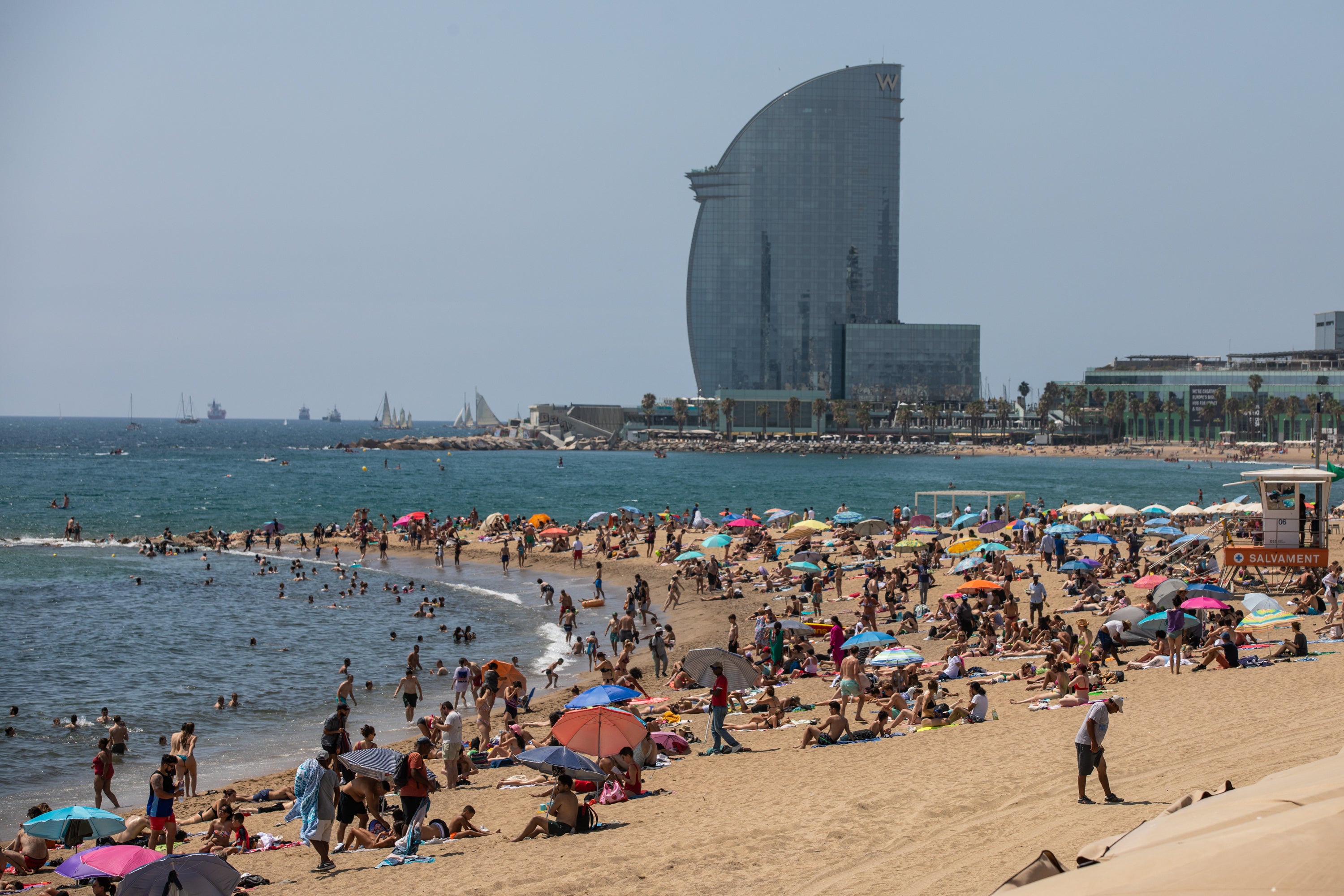Scorched beaches in France and Spain face surge in toxic algae caused by warmer climate
Toxic Ostreopsis attacks swimmers’ lungs and can cause severe flu-like symptoms

Tourists are being urged to stay vigilant on beaches in France and Spain after a surge of toxic algae.
Climate change has led to warmer semi-tropical seas around Europe, causing higher levels of the poisonous Ostreopsis algae, according to Spain’s Institute of Marine Sciences.
Symptoms after touching the algae include skin irritation, gastric disorders, nausea, vomiting, and flu-like symptoms such as fever, soar throat, sneezing and a runny nose.
It also infects sea fauna and has led to large numbers of deaths among species such as sea urchines, according to Marine Environment Research.
“The rising water temperature in the Mediterranean will cause the spread of toxic algae Ostreopsis, which will linger for longer and in greater quantities, possibly posing a threat to tourism in the future,” said Dr Elisa Berdalet, from the Institute of Marine Sciences.
The presence of Ostreopsis has been recorded on the Mediterranean coast for around 15 years but its presence on the French and Basque coasts is more recent.
It was first spotted in the Atlantic Ocean in 2021 and since then, “blooms” of the microscopic algae have caused almost 900 poisonings along the surrounding Basque coastline.
The findings come from a recent report by the French Agency for Food, Environmental and Occupational Health & Safety (ANSES), released in May.
In the 40-page document, director general Benoît Vallet warns of the dangers of human contact with the algae and its toxins.
“These microalgae can cause human poisoning when the cells or toxins they contain produce are present in seawater, aerosols or in certain seafood,” he writes.
Ostreopsis can give off fumes which linger in the air and can attack the lungs or cause other health problems if breathed in.
Those at risk include holidaymakers, fisher men and beach cleaners as well as those staying close to the sea and those who have eaten contaminated seafood, ANSES said in its report.
“People who have respiratory problems are most at risk of showing symptoms,” said Carole Catastini, who coordinated the research. “They have to avoid the coast when there is a blooming of Ostreopsis.”
To protect the health of both professionals and tourists visiting French beaches in affected areas, the health agency has proposed a decision tree for local authorities and health agencies.
Recommended measures range from informing the public when there is algae in the water to banning water activities and closing beaches.
The French health agency has also called for more research into the spread of Ostreopsis and the possible threat to humans and marine life.
Originating in the tropics, Ostreopsis arrived in Europe in the 1990s and has spread along the coast in recent years.
It can now be found on almost all Spanish beaches, either in the water, clinging to rocks or even sand.
ANSES raised the alarm on the creeping menace when they reported an outbreak in the city of Biarritz, on the west coast.
Swimmers, surfers and other beach users reported nausea, fatigue and infected eyes.
Now it is warning holidaymakers to be aware of outbreaks, with the possibility of local officials closing beaches during peak infection times in the summer.
It would not be the first time France has implemented a ban due to the toxic algae. Warnings were implemented along the Cote d’Azur in 2009 when swimming was banned.
To date, the species has been detected in large numbers in the Atlantic as well as parts of the Portuguese Algarve and the Cantabrian Sea.
Rare cases of food poisoning have been reported outside Europe, by invidivuals who have eaten infected seafood, but the link with Ostreopsis remains uncertain.
As a precaution, ANSES advises against collecting shellfish or other seafood when Ostreopsis blooms occur.
"Fish must be gutted before being eaten, as the toxins accumulate in the digestive tract," said Nathalie Arnich, who also coordinated the expert research.
Subscribe to Independent Premium to bookmark this article
Want to bookmark your favourite articles and stories to read or reference later? Start your Independent Premium subscription today.

Join our commenting forum
Join thought-provoking conversations, follow other Independent readers and see their replies